Faced with mixed opinions about the film Southern Forest Land, Dr. Dao Le Na* said that audiences need to be open-minded in accepting art...
 |
| From the controversies surrounding the film Southern Forest Land, Dr. Dao Le Na expressed her opinion that filmmakers also need to be open to listening to the audience's feedback. (Photo: NVCC) |
Adapted films are always compared to literary works.
As a film researcher, what is your opinion on the conflicting opinions surrounding the film Southern Forest Land? In your opinion, why is the film Southern Forest Land controversial?
Audience controversy over a film is not uncommon, especially for works that use pre-existing materials. In my opinion, Southern Forest Land is controversial for a number of reasons.
The film is adapted from the literary work Dat rung phuong Nam by writer Doan Gioi - a literary work that is loved and impressed by many readers. In fact, adapted films are always compared to previous literary works even though the filmmakers only state: inspired by literary works. In addition, the film is also adapted from the TV series Dat phuong Nam (directed by Vinh Son) - a film loved by many audiences and has become a beautiful memory for many people when thinking about the Southern region.
When the film Dat Rung Phuong Nam was released, issues such as patriotism and Southern identity that audiences expected from literary and television works were not met, so many controversies arose. In addition, the film also had other controversies related to details in the film, script, images, special effects, fans, etc.
I think, almost every movie will have controversy but Southern Forest Land is probably more controversial because the movie has outstanding advantages that make viewers excited but also has unreasonable, confusing details that make the audience's emotions scattered.
Some people say that when a film is adapted from a literary work, it must remain intact. What do you think?
I do not use the word “adaptation” because it will cause many people to misunderstand that film adaptations keep the same content, only change the form, so they must be faithful to the literary work. This is the opinion I received when surveying people, especially students and graduate students about the term “adaptation”.
I think that language affects the way we think a lot, so using the term "adaptation" will make people think that if a film takes material from literature, it must keep the original content, otherwise it is called an adaptation.
In my opinion, film adaptation is adaptation, there is no such thing as faithful or disloyal. Film adaptation is a term used to name films that take material from different sources: from literature, television series, previous movies, real events, historical figures, not just literature.
Therefore, I use a single term for this type of film, “adaptation”, not “transformation” or “adaptation”. The research object of adapted films includes remakes and biopics, so the word adaptation cannot be used in those cases. With remakes, when they are remade, the context has been changed.
In my opinion, no film that takes material from a literary work can be “faithful” to the literary work because each art form has its own language. Cinema, theater, and painting have their own rules and characteristics for handling pre-existing materials. Therefore, when a filmmaker takes material from literature, it is more or less called adaptation because to take material from literature, the filmmaker must read the literary work.
As readers, each person has a different way of reading. We cannot use our own way of reading or understanding to criticize or judge the reading or understanding of others. Therefore, when studying film adaptations, what we need to care about is the spirit of the literary work told and interpreted in the film. The spirit of a literary work is something that is evoked from the literary work that many people agree on because each literary work can evoke many different issues.
The filmmaker can change and fictionalize, but the audience can still recognize which literary work the filmmaker took material from and what the filmmaker's adaptation is for. What is important is the filmmaker's spirit of dialogue with the literary work and the spirit of the literary work that many readers agree with when put into film.
Meanwhile, there are many films that claim to be inspired by literary works, but apart from the character names, viewers cannot see the spirit of the literary work expressed in the film.
Therefore, the controversy over films based on literature or real events, real characters is not about faithfulness or fiction but about the spirit conveyed. That is, the common issues that many people agree on when reading literary works, when approaching real events as well as when having an impression of a historical figure, which in our research, we call “collective memory”.
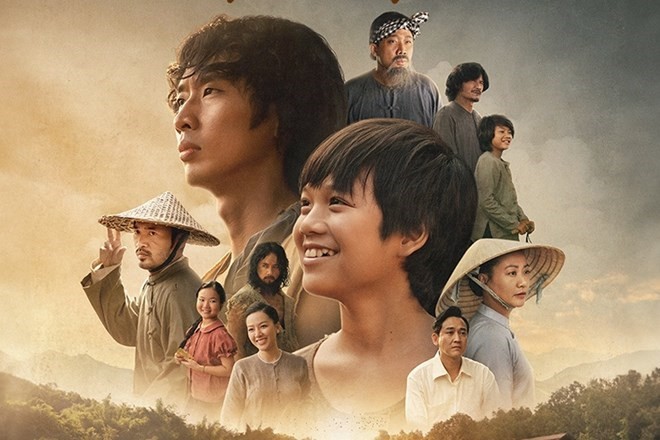 |
| Poster of the movie Southern Forest Land. (Source: Producer) |
Movies and literature are different from history.
Recently, public opinion has been stirred up about the film Southern Forest Land containing sensitive details that distort history. What is your perspective?
Films and literature are different from history in that history focuses on recording events that happened, from the perspective of the historian, while films use events to talk about other issues. To learn history, you need to find research materials to read. Films do not use history to bring those events to the audience, but the purpose is to use history to say something about people, humanity, patriotism or complex issues in the characters' psychology.
In my opinion, the fictionalization or distortion of details in Southern Forest Land in particular and in historical films or films set in historical contexts in general are not a problem because historical events themselves also have controversies, many perspectives, evidence, and documents.
No matter what source the film takes material from, it will have an impact on the audience’s “collective memory”. Therefore, we should not think that “I make films just for entertainment” so that we can freely give out any information, make up anything, and ignore the impact of the film on the audience’s memory. The film may conflict with the collective memory of many people in the past, but it creates new memories for a new audience, those who do not have many memories of the Southern region.
The power of film is great, especially films based on historical material. In Land of the Southern Forest , the filmmaker wanted to convey the patriotism and Southern identity expressed throughout the literary works of writer Doan Gioi to the television series Land of the Southern by director Vinh Son, so he had to promote these elements in the film to match the audience's memories of patriotism and Southern identity. This promotion may be historical fiction, but in the community's memory, it is accepted, even encouraged.
Creating art based on historical materials is always a sensitive and controversial topic. From the case of Southern Forest Land, should we be more open when receiving art?
Yes, the reception of a work of art from historical material is always a sensitive and controversial issue. Therefore, in my opinion, the audience needs to be open-minded in receiving art. However, how open-minded must be clear. Open-minded to understand that movies are fictional works of filmmakers, so we are looking at the filmmaker's perspective on a historical event or a historical moment and need to accept it calmly.
That is, when a filmmaker fictionalizes history, he needs to see if the fictionalization is effective and consistent with other images in the film to create a common message or common spirit that the filmmaker wants to convey.
We should be open to receiving but not accepting it carelessly. When we understand that films have the ability to create collective memories, we should also accept them with awareness. At the same time, we should consider a film as a suggestion of something rather than completely believing in what the film brings.
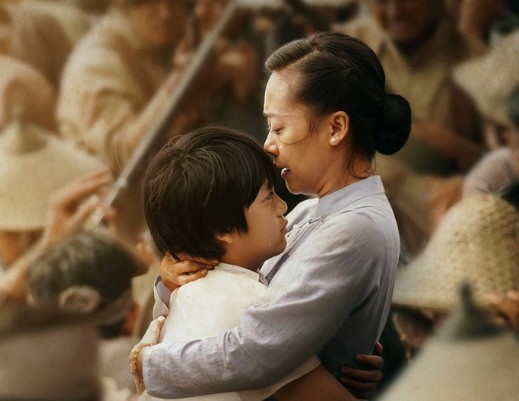 |
| The movie Southern Forest Land caused a lot of controversy. |
So, what do you think needs to be done to give historical adaptations and fictional works a new life in today's society?
I think that audiences today watch a lot of movies, so they are quite open to fictional movies about historical subjects. They only react when the spirit of the movie is different from their memories of that land, people or historical event.
That is not to say that historical films can freely make up stories, but need advice from historical experts when attaching the film to a certain historical setting. That is, the filmmaker must have a reason for his choice. This advice is a reference channel for the filmmaker to decide which elements to exploit and which elements to omit, whether to change the name of a land, person, or event or keep it the same.
I think filmmakers should feel free to be creative with historical material, as long as their creativity fits with the collective memory of that event or offers a new perspective rich in humanity, helping the audience see other issues that move them, adding to their existing memories, then the film will certainly convince the audience.
Debate is necessary for development.
Vietnamese cinema is facing many challenges and difficulties. If there is a problem with a film, should the debate be more civilized and constructive?
For me, debate is always necessary for development. Throughout history, there have been many controversial and even protested literary and artistic works that later became iconic works in art history. What I am concerned about is that there are quite fierce debates not only aimed at the film but also aimed at the filmmakers, those who participate in the debate or call for boycotting the film, using inappropriate language.
Such debates will make it difficult for listeners to accept, even if they are contributing ideas to make the film better. Besides, when the debate is "hot", the opinions given, no matter how objective, will inevitably be interpreted or refused to be listened to.
The audience has the freedom to decide whether to watch the film or not. Each audience member also has the right to have their own perspective in receiving the work. Therefore, every comment we make also needs to be properly analyzed, whether praising or criticizing the film.
On the other hand, filmmakers also need to be open to listening to the audience's feedback because when a film is finished, the author's role is over. The audience will interpret what they see in the film and cannot expect the author to explain.
Even though during the script development and production stages, filmmakers have hidden meanings and messages in the storytelling, intentionally inserting this or that detail, but when the film is released, no one sees those things, so filmmakers still need to listen to learn from experience for future films.
Thanks TS!
*Film researcher, Dr. Dao Le Na, Head of the Department of Art Studies, Faculty of Literature, University of Social Sciences and Humanities, Ho Chi Minh City National University. - Author of books: Horizons of Images: From Literature to Cinema through the Case of Kurosawa Akira (2017); Contemporary Japanese and Vietnamese Cinema: Cultural Exchange and Influence (editor-in-chief, 2019); Narrative of Raindrops (novel, 2019)... |
Source


![[Photo] Prime Minister Pham Minh Chinh chairs meeting after US announces reciprocal tariffs](https://vstatic.vietnam.vn/vietnam/resource/IMAGE/2025/4/3/ee90a2786c0a45d7868de039cef4a712)
![[Photo] Special relics at the Vietnam Military History Museum associated with the heroic April 30th](https://vstatic.vietnam.vn/vietnam/resource/IMAGE/2025/4/3/a49d65b17b804e398de42bc2caba8368)

![[Photo] General Secretary To Lam receives Japanese Ambassador to Vietnam Ito Naoki](https://vstatic.vietnam.vn/vietnam/resource/IMAGE/2025/4/3/3a5d233bc09d4928ac9bfed97674be98)

![[Photo] Moment of love: Myanmar people are moved to thank Vietnamese soldiers](https://vstatic.vietnam.vn/vietnam/resource/IMAGE/2025/4/3/9b2e07196eb14aa5aacb1bc9e067ae6f)
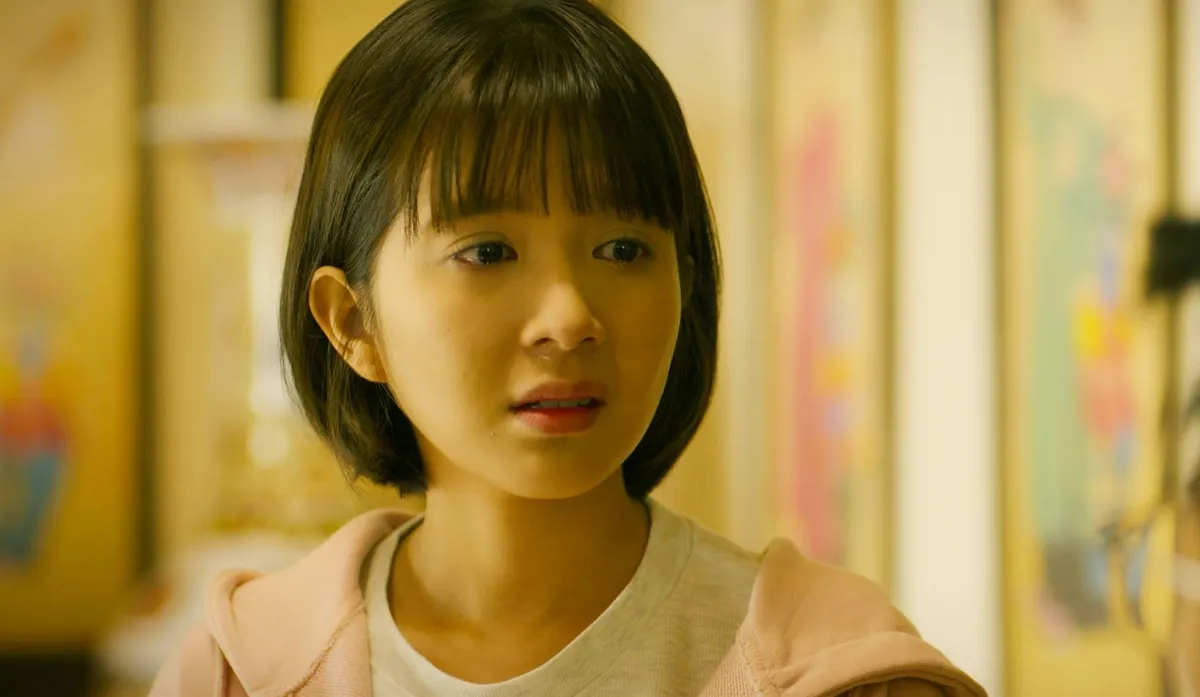






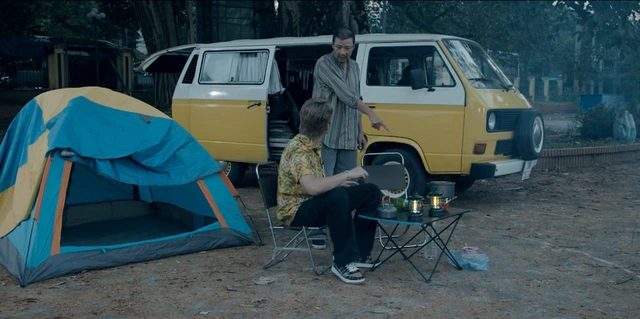







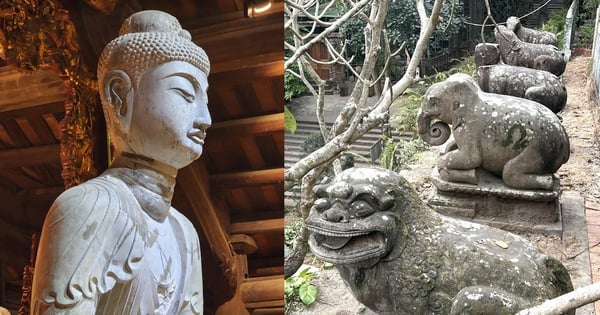








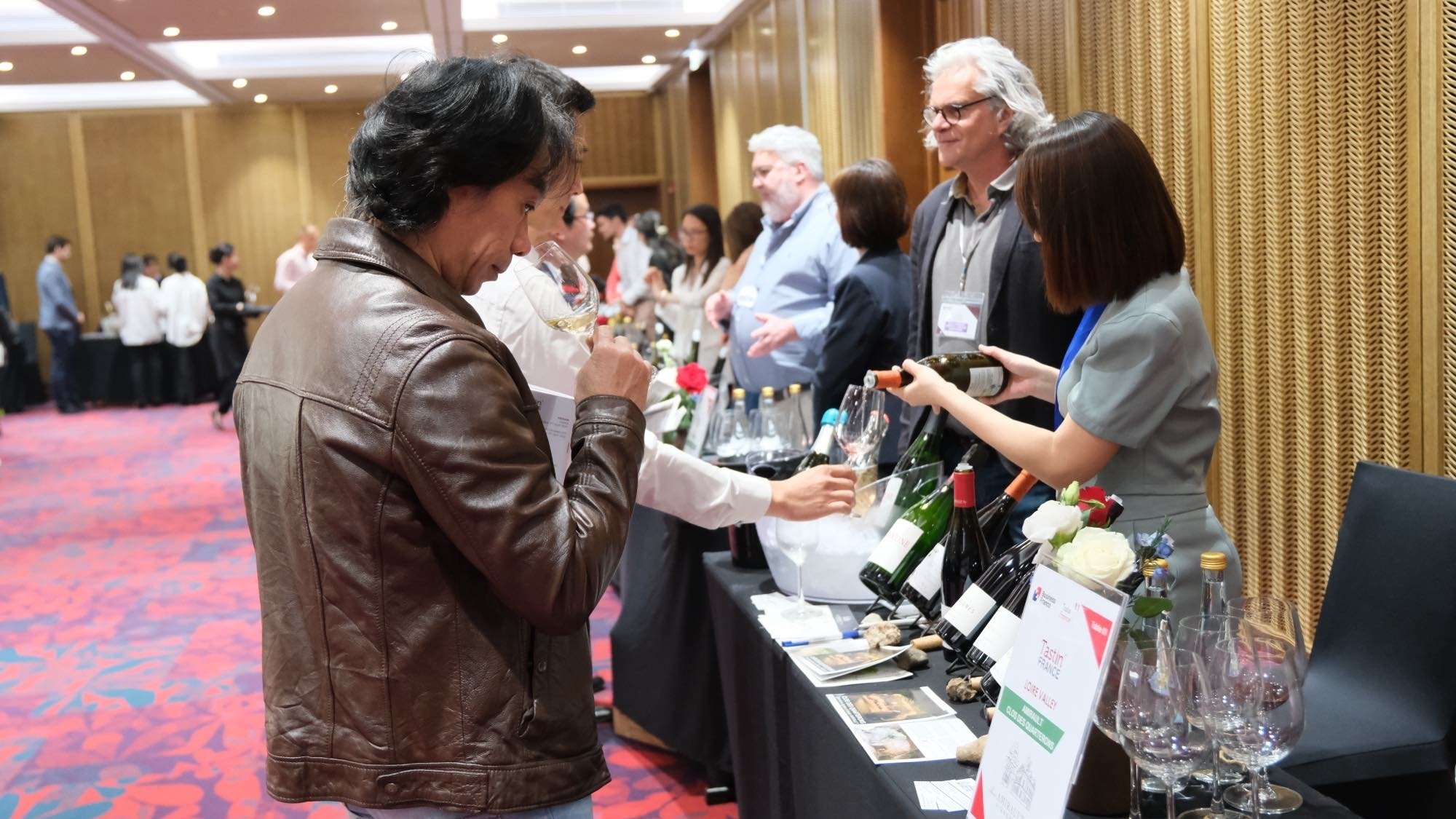



































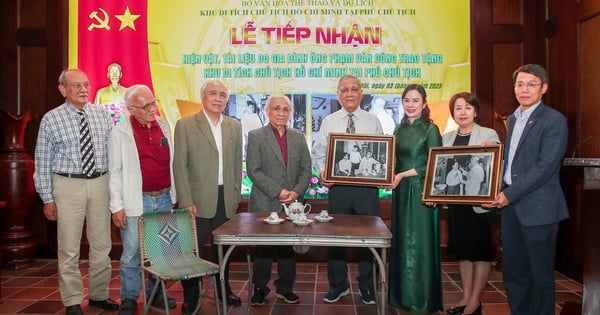



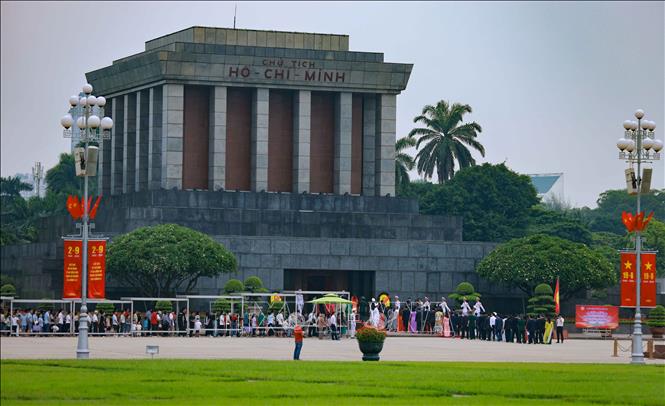




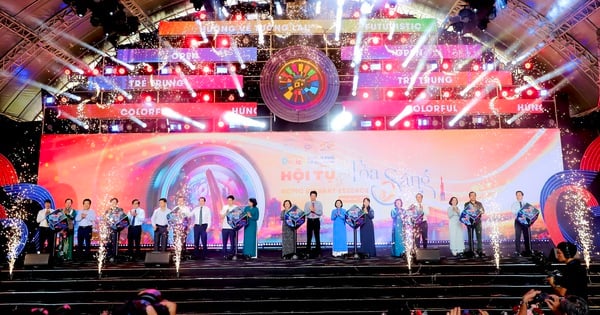


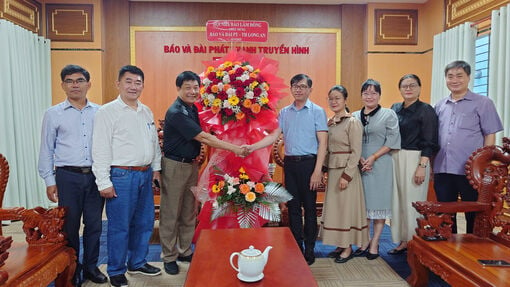


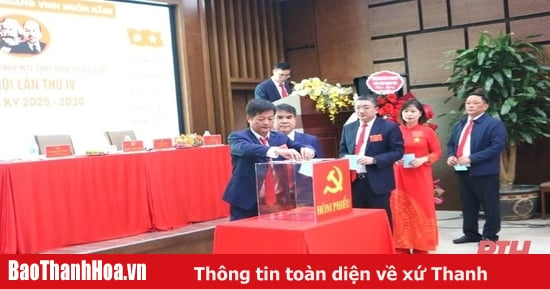
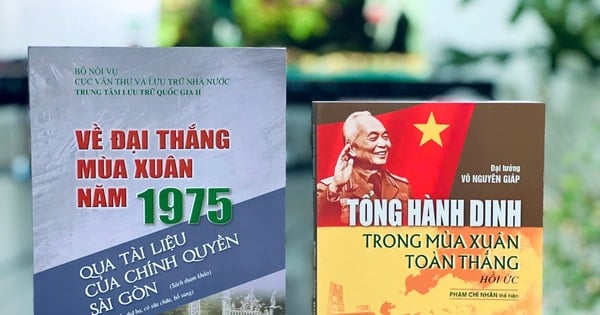














Comment (0)